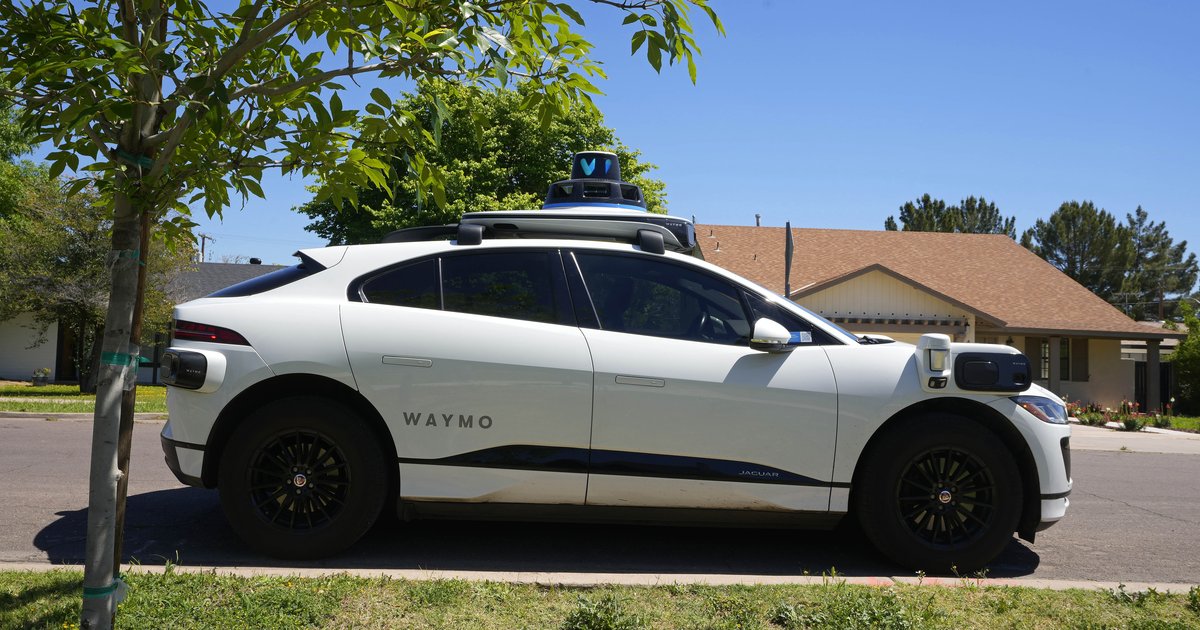Waymo, the robotaxi service with self-driving cars in a handful of U.S. cities, has plans to begin testing autonomous vehicles in Philadelphia as part of its “road trip” tour of potential markets for expansion, the company said Monday.
In a post on X, Waymo said Philly is the next stop in its series of visits to explore new urban territory and refine the company’s self-driving technology. Waymo robotaxis are not available to be hailed by the public for rides during road trips.
MORE: Navy Yard gets $100 million investment to ramp up submarine manufacturing
For the program, Waymo deploys a small fleet of autonomous vehicles — aided by human specialists behind the wheel — to map out cities and expose the cars to new environments that improve road capabilities.
“To bring the benefits of our technology to more people in more places and deliver on our mission to improve road safety, we take the Waymo Driver on road trips to regions where the driving culture and conditions differ from the areas we regularly operate,” a blog on the company’s website says.
Waymo could not be reached for comment Monday, but a company spokesperson told TechCrunch its autonomous vehicles will be tested in some of the most complex areas of Philadelphia — including in Center City and on major highways. The spokesperson said the cars will be out “at all hours throughout various Philadelphia neighborhoods, from North Central to Eastwick, University City, and as far east as the Delaware River.”
Philadelphia’s Office of Transportation and Infrastructure Systems referred questions about Waymo’s testing to PennDOT, which regulates all autonomous vehicle deployment in the state. PennDOT could not be immediately reached for comment.
Waymo’s first fully driverless robotaxis became available for rides in Phoenix five years ago, and the company has since rolled out service in Los Angeles, San Francisco, Atlanta and Austin. Miami and Washington, D.C., are both on track to get service next year.
This summer, Waymo also is manually driving cars in New York City and parts of North Jersey, where the company does not yet have permits to test its self-driving technology. Waymo said last month it had applied for permits in New York City and hinted generally at plans to introduce the ride-hailing service there in the future.
Public perception continues to show skepticism of self-driving cars. A February survey by AAA found that 61% of Americans are “afraid” to ride in self-driving vehicles, down from 66% a year ago. Just over half of those surveyed by AAA this year said they would not use robotaxi services like Waymo and Cruise.
Waymo has been building a case for having better safety performance than human drivers. In a May study published in the journal Traffic Safety Prevention, Waymo’s analysis of its fleets in Austin, Los Angeles, Phoenix and San Francisco found there were 85% fewer crashes with serious injuries and 92% fewer crashes involving injuries to pedestrians when its cars were compared with human drivers. The study was peer-reviewed by outside traffic safety experts.
Although Waymo’s road trips don’t necessarily mean the company has imminent plans to roll out commercial service, the company’s visits have been a precursor for it in the past. A Waymo road trip to Santa Monica, California, in 2023 later led to the company deploying its fleet of robotaxis across Los Angeles in November.
Pennsylvania has been gradually moving toward deployment of self-driving vehicles in the freight and ride-hailing industries. PennDOT adopted guidelines in October that regulate how the private sector can get certified by the state to operate autonomous vehicles, including those that operate without humans on board. The agency believes companies specializing in self-driving technology still need to get accustomed to Pennsylvania’s roads and weather, which differ from the flatter, more open spaces and temperate climates where the technology is further along out west.
“We do have companies in the state doing testing on the road already,” Derrick Herrman, PennDOT’s chief of transformational technology, told PhillyVoice during an interview last fall. “Most of those companies operate in and around Pittsburgh, like Stack AV and Aurora. We definitely expect the western part of the state to continue on with that trend, but I wouldn’t be surprised to see Philadelphia have interest in a robotaxi company just because it’s such a huge market with a great opportunity.”
